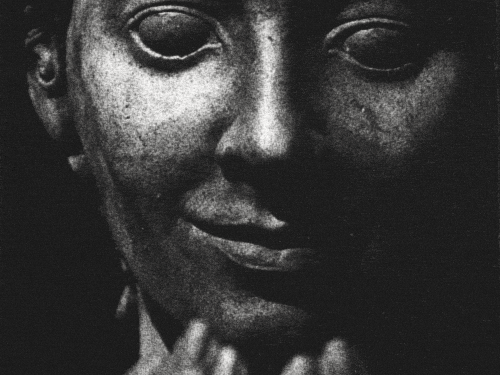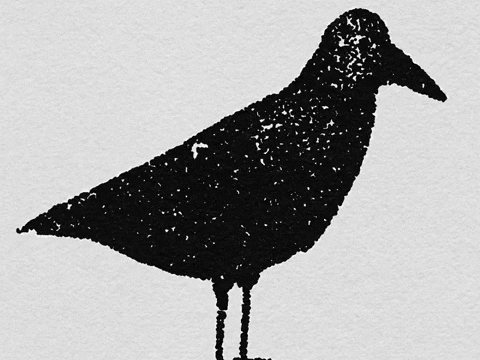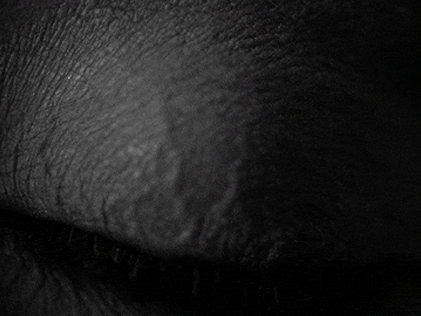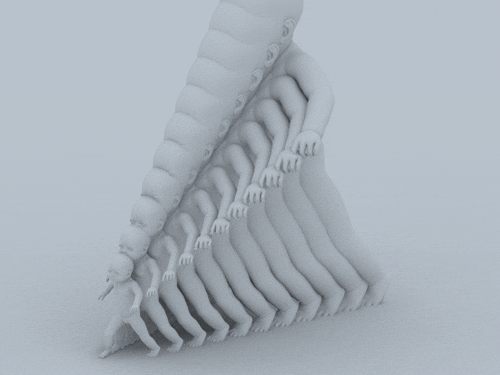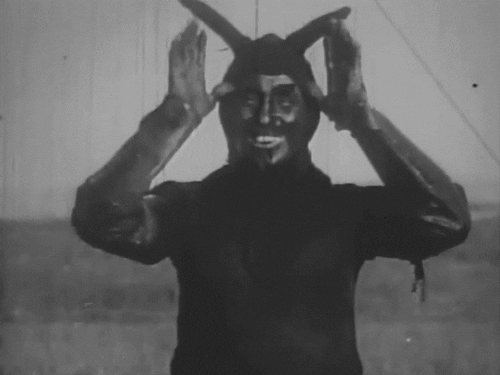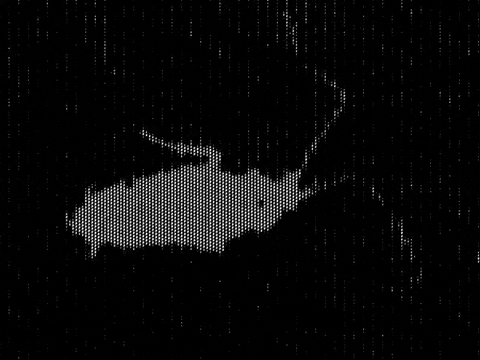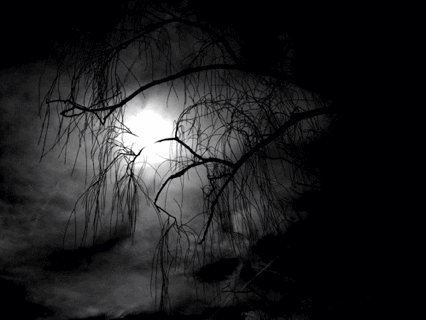By Shoshana Groom
Mila was a girl of hearts: big eyes and a tiny chin, sweetheart neckline narrowing into a pinched waist and growing again into two wide hips, hair like chocolate liqueur and a soul as comforting as a carton of strawberry ice cream. Paula with her snorty giggle, Inga with her tissue-stuffed blouses, they may as well have withered to sponges when Mila’s car first glided through our gate. I knew we were supposed to spend our weekends building our future homes, preparing ourselves to be good sons of the motherland, but I was just one of the village boys who wasted the days following Mila like a puppy, carrying her books and bringing her tacky jewelry worth half our stipends. I’m not sure we would have gone to war if our prime minister had ordered, but none of us would have hesitated to throw ourselves before a bullet to defend Mila’s glory.
(Before I go further, I need to say that I’m sorry and Mila is okay now.)
Ours was a nothing-town drowning in old folks who wished they lived in a nothing-town drowning in blonde babies, the type of place where everyone could trace their lineage back to the same 30 Vikings and foreigners only lived on the fuzzy gray screens of our TVs. I remember that, once, the mayor’s wife trapped Mila by the apples in the grocer’s and demanded to know the origin of each and every of her great-grandparents as though calculating her claim to the whole 840 square feet of her apartment. Every young man in hearing range flew in on golden wings. Why did it matter, what her past was? She had our values, helped coach our children’s badminton. Was she not ours, in the present? Would she not make such a good ours, in the future?
Besides, she was clearly a descendent of Vikings, anyway.
(The mayor said the youth in town were lost, talking back to a grandmother, and ordered us to 15 hours of service each at the local farms. The farms made the case that our true crime against the mayor’s wife was ideless when the old folks like her couldn’t retire less they wanted our crops to rot in the field, and convinced him to extend the sentence until there wasn’t a single “workers-wanted” sign in the windows. Our parents protested that they needed us in their own shops and so the true length of the sentence evened out to ~6 months of double-shifts at the farms and our parents’ businesses, running to-and-fro so fast that the town glimmered with the illusion of youth again. Mila called us her heroes and batted her eyelashes, and I would have done it 100 times again.)
It’s hard, looking back, to know if she was manipulating us. She knew the spell she cast on us, the whole town did, and she lavished in the attention of her gleaming halo like a cat in a sunbeam. But she never led us on; it was our own imaginations that convinced us she’d fall into our arms around the next corner. “Oh, Greger,” she would laugh when I gifted her a sterling-silver necklace for which I’d dedicated a month, “You’re so sweet, a true friend.” I could hear the wedding bells.
The winds shifted when word came from her father; a change in the family’s financial situation, she could attend university. We gathered around Mila in the town square, us everyday enemies united in terror, supplicants trying to convince our God to not forsake us. “Mila, Mila,” I said, my voice somehow rising above the crowd as I tried to stand dignified and reasonable. “You are better than this. It’s as the prime minister said – education wastes women at a time when we need them most. And you are too precious to be–.”
“Wasted?” Mila asked, and for the first time since I’d known her, the halo flickered. Elias smacked me.
Casper slid into the conversation, smooth as a pearl. “We just mean, you’d make such a good wife, a good mother. With the maternity subsidies, you’ll make more than you ever could in some soulless office, and you’ll be free to make a name for yourself that will echo throughout the generations – how could our great-grandfathers have conquered half the continent without the women who birthed them? You deserve to be a hero of the motherland, Mila.” He flashed his dazzling smile and gave her hand a long squeeze, the most physical contact with her any of us had achieved.
“And you’ll be serving your country, instead of living just for yourself,” Johann added. Perhaps it was the desperation that turned him mean, although I don’t believe he meant her insult. At the time, we cursed him when she abruptly stood and walked to Inga’s house, blinking away an unnaturally unattractive red hue in her eye. But she chose to stay, so only 48 hours later, we cheered as he downed our thank-you shots at the pub.
(I later learned that Inga had accused her of being a tease who’d never amount to anything but a collective wet dream, and the village mothers had sighed that it was a shame such a lovely girl should waste her time on frivolous pastimes instead of building a family, but they never got thank-you shots.)
At first, she was like a butterfly out of her cocoon. Before, her legs had always been crossed, her perfect giggles always artfully hidden behind her hand. Now, she reclined on our laps and guffawed, snuck a kiss here, even let me feel her breast in a closet once. It was a dazzling time, a blinding time, and I barely noticed how many evenings she was spending with Casper and Casper alone. But we all noticed when Mila suddenly shut herself into her house and didn’t leave.
Finn had the thought to confront Casper, breaking down his father’s door when he didn’t respond to our knocking. “What did you do to Mila?” we demanded.
Inside his room, we found Mila’s clothes, a strand of her hair on his pillow, a framed sketch of her tipped over his shoulder and laughing her face heart-pink. Casper was ashen, staring at his feet. “The doctor says it’s triplets,” he finally said.
The room went so cold, I thought Mila’s relics would shatter. “Triplets? Casper, you can’t afford that,” Johann whispered.
“I know. I…she said she’d take care of it.”
“Take care of it? She could get locked away–”
“I know!” Casper snapped, grabbing Johann by the collar. “Which is why the authorities will never learn, right?”
And we loved Mila, so we said yes. Three weeks later, Mila rowed out to the island and didn’t come back.
The island was technically public property, a popular picnic spot just a ten-minute row off our shores. But the young women were glad to see her go, and us young men, well, she was trapped safely in reach, just a longboat-paddle away if we dared. No one complained.
(Decades later, during a game of badminton at her local senior center, Mila told me she was never assaulted, not in the decade she spent on the island, not before or since. Some clenched muscle deep in my heart dissolved like a ghost who’d made a home in its chamber was letting me go, and I didn’t see her serve until the birdie slapped my forehead.)
She did visit the mainland, occasionally; under the cover of night, wrapped in a cloak, stepping into town only long enough to hail a taxi to whisk her away into the city. I know she paid a crew of construction workers to sail over and build her a cabin – at the time, I couldn’t fathom where she’d gotten the money – and she made occasional runs to the supermarket to buy the lemon puff biscuits she loved so much. But she may as well have been a moon-creature living on the edge of our horizon, a flash of movement under a starlit sky. She belonged to that dark island as surely as we did not.
I’ll admit, I went mad in those early months, trying to figure my place in all this (for of course I had to have a role in it). Was she lonely and discarded by Casper, in need of my rescue? Or was she jaded from love and just wanted a pretty boy to wash her floors? Would I dip that low? (I would have.)
As it turns out, I was not the only one with these questions, nor was I the bravest. Not half a year later, Melker stepped into his father’s boat and rode to the island in the black of night. Paula, skinny-dipping in the sea, saw him leave, so all the young folk of the town accosted him the morning after his return. He set his lips and shook his head, refusing to tell us anything, but a week later over pints at the bar, Inga leaned over her martini and whisper-proclaimed that Melker had told her everything, crying in her arms.
“She laughed at him,” she announced, triumphant. “But oh my god, how he stressed that it wasn’t a cruel laugh, no, she wasn’t laughing at him, it was just that sweet sweet demeanor of hers. She told him that next time he should bring offerings, something to prove he can provide, if he wants any piece of her.”
“Poor boy,” Paula said, the strawberry cider turning her as soft as spun sugar. “What chance did he stand?”
Finn snorted. “You don’t bring a stick to a sword fight. Melker’s thin as a tree.” I thought he was onto something, but patting himself too firmly on the back. If you’d asked me then, I would have said only another God would have been good enough for her, and she was a monotheistic type.
“Oh, but that’s the best part! She said that next time, she should hope he was more of a man. That maybe then she’d let him stay…but only for the night. And even with his head on my tit, how mournful he looked!” She laughed a little too hard. I didn’t know if I should laugh along or reproach her, but I did neither.
And yet the story stuck with me like an axe in the back. If I breached Mila’s shores, gave her an offering as fine as she deserved, what would she make of me? Would I be good enough?
Johann was the next to try, three months later. He came back with a dark red burst on his neck, a grin on his lips, a hollowness in his eyes. “She’s as beautiful as the day she left,” he promised, “and oh, so passionate.”
“Careful,” I whispered, jealousy snaking up my neck. “Don’t forget what happened to Casper.” Casper had thrown himself into his work, sweating in his father’s shop from sun-up to sundown.
Johann laughed. “She’s no oblivious doe on the shore anymore. She knows how to deal with a man.” And if I’d hated him less in that moment, I’d have heard the bitterness in his voice.
If Johann – annoying, needy Johann, the first to plop onto his back at Mila’s feet if he thought it could earn him a belly rub – could woo her, so could I. I spent months saving up an offering. Finally, in a boat ladened with batteries and bananas, canned meats and good sturdy blankets, I set off towards Mila’s island.
The moon hid behind a cloud just as I docked, and I flicked on a flashlight so as to not slip on the slick rocks. “Mila?” I called.
The wind sighed through the trees. Somewhere close by, I heard crying. Shadows twisted in the light of my flashlight and some other, dimmer lights from deeper within the island. My heart pounded. For several seconds, I stood on the rocks, alone.
“Greger?” She slid out from the trees like oil in a black sea. Her knee-length coat wavered in the wind, and her face was covered in shadow. “Point the light on the boat, dear.”
I did as she said. “Oh, thank you,” she murmured, still perched in front of the treeline. “Unload it, will you?” I obeyed. When the provisions were stacked on the shore, I stared at her silhouette, hands outstretched.
“Well?”
She chuckled, not unkindly. “Darling, not now, not while you have nothing to your name. Build yourself your own modest empire and come back to me.”
I was falling, and yet I was standing stone-still and the world was standing stone-still, like man shot at war except nothing like that because I was not brave enough or strong enough to deserve to go to war even if there had been one, even if the men of my country were not so pathetic and weak that we had not fathered enough citizens to power our mills, let alone an army, and didn’t even have the balls to be ashamed.
As though I was watching from afar, I nodded and sailed back. When I’d nearly reached the mainland, the moon slid out from under its cloud again. I turned back, and I saw her glowing silhouette on her beach, and I understood why doomed sailors let themselves be dashed against the shores.
The years passed. Casper inherited his father’s business. Paula got fat and married a fatter man and they moved to his home country so their children could have cousins to play with and schoolmates who wouldn’t call them alien-bastards. Inga had two divorces in four years and took up chain-smoking, swapping out nights at the bar for yelling at schoolmistress Lovisa during parent-teacher meetings with her singular, awful son. Johann moved into the city and reared a straight-laced family with a straight-laced little wife, and Finn moved across the country “to find a place where things fucking happen.” I built myself a house, worked 60 hours weeks without employees – where could one even find employees anymore? – to make a name for myself in turkey husbandry. I never passed the shore without looking towards the island on the horizon.
We kept visiting her, we all did. Melker finally earned a place in her bed after three years, and we obliged him with a newfangled title of a Real Man and a round of drinks at the pub after his wife had gone to sleep. Elias won her over after five, and regaled us all with tantalizing tales of his great conquest, the image of her squirming in undignified ecstasy under his hands a frequent backdrop to my darkest thoughts. Villages nearby trembled with whispers of the vixen on a dark island with a smoky hold on our town. A couple of businesses in the city, looking to make some bread from the bored day-laborers with no family and no future, began offering pre-supplied boat rides to her shores, although the city men didn’t have much luck from what I’d heard. As for me, I tried and failed three more times over seven years before she accepted me.
It was a dreary night, rainy but not dangerously so. I hopped onto the rocks with resigned practice and called, “Mila?”
Whispers snaked through the trees, and I would have told myself they were just from the wind if it had not been a still night. Again, I could swear I heard crying. “Mila?” I called again, so to not feel so alone.
“Greger. Oh my dear, you’ve come back for me.” It was so dark, I hardly knew from where her voice came
“I’ve brought you chocolates, Mila, and alpaca-wool robes,” I stammered, trying to feel for the wood of my boat bobbing in the water. “I’ll unload them for you, you don’t need to—”
“Relax, Greger. You’ve impressed me greatly.” She sighed, the sound disappearing into the rain. “I’ve heard stories of you from the little old lady that drives the cab, from the tax-man I visited just last month. Finest poultry in the motherland, they say.”
“So you’ll have me?” I blurted. I was 26 then, too old to be groping at her knees as I was, to be reaching for that white-hot crown. I hated myself for it.
“No,” she said quietly. “Greger, you have a life to live, women to marry and a family to raise. How long are you going to chase after a ghost?”
It was like being pushed into an ice-lake, freezing me in place besides the boat of goods I couldn’t afford, the saplings I towered over with my unearned two-meter height. “I’m sorry.”
“You have nothing to be sorry for. You’ve built a life to be proud of. When you get to land, feel free to tell them all that I let you into my bed.” There was something stretched behind her voice, something old and painful.
I thought of the boys congratulating me, Elias buying me a round at the pub. I thought of how beautiful she would look in fifty years, waking with long gray hair tangled across her face. “Mila?” I asked. “Could we…talk?”
There was a note of pause, and I wondered, a strike of panic, what I’d done wrong. Then her voice, like water on parched dirt. “Oh you sweet man. Let me give you a kiss.”
I heard footsteps, stumbling, a cry and the sharp smack of flesh against rock. I hurried to the sound, kneeled and groped in the dark until I felt fabric, the shoulder of her dress. I helped her to her feet, tried to take her by her soft waist. She jumped back like a frightened animal.
“What’s wrong?” I asked. “Are you okay?”
She returned to me and deliberately placed one of my hands on her collarbone, one around her hair. She trembled, ever so slightly, under my hand. “Thank you, Greger.” I could hear that she meant it.
“You deserve the world, Mila.” I wrapped my fingers tighter around her skull, as much to anchor her in the dark as to pull her close, and pressed my lips against her, gentle. She tasted like salt and crackers.
She took my chin in her hands and tilted my face upwards. “Would you like proof, for the boys?” she asked. When I shrugged yes, she leaned over as though avoiding a fire between us and pressed her lips against my neck. I closed my eyes, trying to burn every detail in my mind, feeling tall and strong for the first time in years.
And then she burst the capillaries in my neck with the precision of a fox eating a vole, and it hurt. I gasped, and she recoiled, her hands still on me. “I’m sorry,” I whispered. “Is there anything I can do for you?”
She was quiet for several seconds. “You’ve earned a secret,” she finally whispered, the sultriness washed from her voice to leave it raw and small. “I haven’t slept with any of the village men, not since Casper.”
A shock like ice water, sharp and pure. “They’re lying?”
“With my blessing. Just like you. Only you know the truth, dear angel.”
“But…why?”
She gently untangled herself from me. “They want a conquest, and conquered empires collapse when the armies move on,” she said. I believed that she meant what she said, at least a small and bitter part of her did, but I also thought that, perhaps, there was a reason you could not draw God in the flesh, and perhaps she knew it too.
But I didn’t share my thoughts. With a soft farewell, she sent me back across the waves, and as far as the men of the town and the city beyond knew, I was a victor. I cried on the boat ride back.
(There was this joke we liked to tell, not when the girls or the older folks could hear, although I think we’d learned it from those same older folks. It took different forms. Sometimes it was “Why are our girls so hot?” and sometimes it was “Why are Celtic girls so ugly?” and sometimes it was “Why are Slavic girls so ugly?” and on and on, but the answer was the same: because great-great-great grandpapa left the ugly ones behind.
I answered that joke, once, when I was very drunk, around Paula, who was also very drunk and who had already started to get a little fat so I wasn’t really thinking about how we never told it around girls. Paula swayed and giggled, and then she asked me if she would be hot enough to not be left behind, and I hesitated for too long, and then she started to cry.)
I’m still not sure who snitched on Mila; if it was a disgruntled suitor who saw more of her life than she intended, the doctor on the mainland proud of his patient’s fertility, Mila herself, half-mad from her self-imposed solitude and desperate for recognition. Either way, ten years after she left for the island, our normally-empty streets swarmed with news vans, politicians shaking hands, ships running to the island to the city to the town and back again in the bright of the day, a large structure in the town’s square covered by plaster and an ever-moving layer of workers. I ran into Inga outside the grocer’s, her sulky preteen 20 paces ahead and a flask in her hand. “What’s happening?”
She snorted. “Another desperate ploy to get us to fuck for the motherland. You don’t watch much TV, do you? Can’t flip through two channels without hearing some white-suit prattling on about how chicks who shoot out a whole workforce are true national heroes, like the dudes that get blasted to pieces for our country, or would if there was a war anyway. I think they’re making a statue of some quiverfull lady. Making a billion-dollar big deal of nothing, while our old folks can’t even afford a caregiver. Pandering pieces of—”
“Who?”
“Who knows? Plenty of chicks from here can’t keep it in their pants. Paula, maybe.”
I could see yet another ship docking on Mila’s island. I moved without thought, my conversation with Inga abandoned, and was in my boat and flying towards her before my brain caught up.
By the time my boat knocked against the rocks of her island, the authorities were departing, shooting me triumphant grins as they piled into their polished ship and slid away. The beach looked foreign in daylight. I ran past embarrassingly nonthreatening trees, past garden plots and a makeshift swimming pool, until I reached the cabin. “Mila?” I cried, banging on the door. “Are you okay?”
A child opened the door.
She was clearly Mila’s daughter, but I couldn’t see a man I knew in her eyes. (I would later learn she’d been conceived from a sperm donor, at a clinic in the city.) She looked to be about seven years old. “Mama?” she called. “There’s a man here for you. Not from the government.”
Mila stumbled into view, a baby on her hip, and I truly saw her for the first time in a decade.
Her silver-dusted hair was frazzled; her eyes, lined and bagged, as though she’d been collecting nights without sleep like a hoarder collects newspapers. Her breasts sagged through the fabric of her bra, her stomach sagging out beneath it, and her love handles and soft thighs were banded with plum-kiss stretch marks. When she saw the look on my face, there was nothing I could have said. She collapsed in a chair, sobbing.
“Mama, what’s wrong?” the girl cried, patting Mila’s hair. Two little boys, about ten years old each, ran in and clustered around their mother.
“Just go!” Mila cried. “There’s nothing for you here.”
“I don’t understand,” I blubbered. “Mila, what’s happening? How long have there been children on this island? Are the authorities hurting you?”
She pushed her kids away, wiping a tear from her eye. Three more kids ran into the room, curious about the noise. “They demanded to have me and the kids present. ‘Inspiring the nation’s women’ and all that, not mentioning the riots at the capital but I know that’s what they’re here, they need a success story to distract the people with and aren’t I a convenient one? They kept going on about the subsidies, about how I proved that poverty was no excuse for not having babies now that there’s subsidies, like this was ever about the fucking subsidies!” She gasped, covered her mouth, but her children didn’t notice her language. Between her fingers, she whispered, “And they took photos of me, for when they sculpt the final layers of the statue. Wouldn’t let me give them photos of myself, from back when I was…well, you know.”
I sat down before her, took her hand in mine. “Mila,” I said. “I don’t know. Please. It’s been ten years. Who are you?”
And so she sent the children from the room and told me everything. Through tears and clenched hands, she tells me about how terrified she’d been to be seen swelled and deflated with triplets, to have anyone touch her and feel the history of her body, to watch her halo waver and smoke in the eyes of Casper and, barring dire action, more to come. She told me how she couldn’t bear to be a selfish whore who produced nothing for a motherland in need of children, and she couldn’t bear to grow loose and saggy, the vixen melted and deformed. And so she left us, and the sperm bank deep in the city was her temple, and she had 10 beautiful children and the maternity subsidies trickled in and –
“Were you happy?” I blurted.
She took a shaky breath. “I don’t know,” she said. “When darkness fell, I felt like a guardian angel, tall and beautiful and strong, if alone. Maybe that’s an angel’s cross to bear, always flying above the souls around you, never able to rest your head on their shoulder. But now…I’ve fallen, don’t tell me I haven’t.”
I wanted to tell her that she didn’t look awful, because she didn’t. I want to tell her that it was impressive – sad, yes, but impressive – that she raised such healthy-looking kids all on her own. But I looked at her, and I saw Inga, sneaking off to smoke after her kid stopped throwing a tantrum. I saw Paula, laughing with her husband in their matching graphic tees. And she saw it too.
Although she hasn’t been back to our ghost town in almost half a century, I still keep occasional correspondence with Mila. Her ten children have each had children of their own, and she’s happy, I think, cooing over her grandbabies in her new home across the sea and playing badminton at the senior center with her girlfriends. She writes, blunt and unashamed like a historian of her younger self, about her years on the island, shattered mirrors and abandoned diets, suitors savored and cast away like a yo-yo, keeping the shadow puppet of the vixen alive by night, playing bocce ball with her kiddos by day. She writes about rationing maternity subsidies and months-old boxes of Triscuits, about dancing in the rain with her children when the water fell through the holes in her roof. She asks me about my wife and my business, and I think she does care. She asks me about the town, proven by newfangled DNA tests to be as Celtic and Anglo and Slavic as the cities we once scorned and yet so empty of immigrants that the whispers of great-grandmas snatched from distant nations all you can hear in the dead of night, and I think she genuinely feels sad when I answer honestly.
But on that fateful evening, standing at the edge of a crowd, I couldn’t make eye contact as she walked on stage in a deep-hooded cloak and scarf as though it weren’t the warm end of spring, as the representatives shoved microphones in her face, asked her to share her message to the women of the nation. I couldn’t watch as my countryfolk stared at her children, whispered among themselves in confusion, tried to whisper to me. I didn’t watch as they unveiled her statue under the blare of floodlights, as the out-of-towners whooped and clapped for the cameras, as my buddies’ faces went ashen.
As she shepherded her kids back to the boat, the majority of the men padded home, whispering in pairs and looking everywhere but others’ eyes. But Melker, face red and pinched, marched up to her as if to bowl right into her. “How could you have done this to us?” he called, the space between them growing dangerously small. A few villagers looked our way. “You made us fools, woman! You—”
I rushed in, shoved him backwards. I didn’t mean to, but I sent him sprawling. He gaped up at me. “What are you doing? She deceived you too!”
I wanted to answer, but I didn’t have anything to say to him. I left him there, wrapped an arm around Mila, and walked her to the boat. “I’m sorry,” she whispered, again and again. “I’m so sorry.” She sagged against me. A tear snaked down to kiss my bare skin, and off in the distance, in the high-pitched squeals of her kids, I could hear her halo shatter to dust. “I just wanted to be good.”
After the statue was dark and the press had gone home, someone took a sander to the statue. They tried to shine away her stretch marks, narrow her waist, lift the lines from her brow and the bags under her eyes. Maybe they couldn’t see well in the new moon; maybe they were inexperienced with the machinery. When the sun rose, all her features were gone, a blank slate staring down the town. Probably for the best, then, that they never saw her again.
Shoshana is a writer of folksy, feminist, and fantastical stories hailing from the Willamette Valley. Her work has appeared in Beneath Ceaseless Skies, Maudlin House, and 45th Parallel, among other publications. When she's not writing, she's country-western dancing and trying to stop her pet rat from destroying all her stuff. You can visit Shoshana at https://shoshanagroom.wixsite.com/shoshanathewriter.

